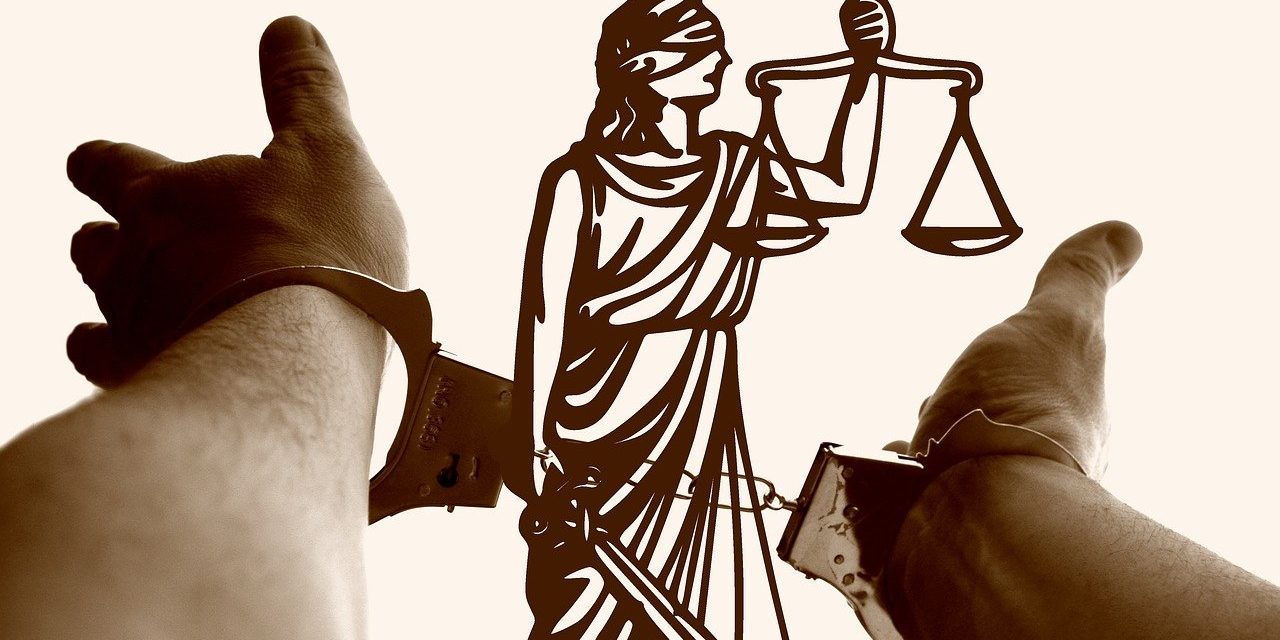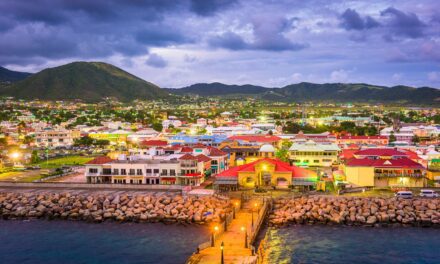What are The Best Countries With No Extradition for Americans, British, Canadians and Australians?
To understand what the best non extradition countries are, we need to learn a little about what the process of extradition is. Extradition is a topic that’s not well understood. We hear about high profile cases like Julian Assange ad Carlos Ghosn but few people understand what extradition actually is and what procedures countries must follow if they want to extradite somebody.
Extradition is the process where two countries enter into a legally binding international treaty to surrender someone present in their jurisdiction and wanted for a crime to each other. Non extradition countries are those that don’t have an extradition treaty with the requesting country. The list of non extradition countries is different depending on which country is making the request.
Normally one country will ask that the other country arrest and hold a fugitive that they are seeking and who is present in that country. Once the fugitive is detained, he may be returned to the requesting country but only after a court hearing to ensure that the extradition is lawful.
The history of extradition goes as far back as the Roman empire where it was possible to extradite those suspected of crimes between its provinces.
One of the first extradition treaties was between England and Scotland which was signed as far back as 1174. The treaty called for “The surrender of traitors and felons”. Extradition was used to capture those wanted for political offences such as trying to overthrow the monarch of the day. In the present day, political offences are universally excluded from extradition treaties.
Modern-day extradition is made up of a series of bilateral treaties between countries. Not every country has extradition treaties with every other country so there are always s safe havens for fugitives to evade capture. There are dozens of non extradition countries, depending on the offence and the requesting country.
Extradition is, in fact, a rare event even in the modern day. It’s more common between states in the US and between nations of the European Union. For minor offences there will be no appetite for most countries to even attempt extradition. They can be long and slow procedures and involve complex international law, national law, and translations.
What is an International Arrest Warrant?

The term International Arrest Warrant is something coined by the media. What they are normally referring to is an Interpol Red Notice. An Interpol Red Notice is not actually an arrest warrant. It’s an alert that a suspect is wanted and that he may be overseas or travelling. Non extradition countries will not be able to enforce an Interpol notice.
While one country may temporarily detain a traveller attempting to cross a border due to a red notice it does not give them any authority to arrest. They will inform the requesting country of the suspect’s location. That country may try to stop him from crossing a border. It does not mean the suspect will be immediately returned to the requesting country. That is a media-created myth. That being said it’s not a good idea to attempt international border crossings while on Interpol’s red list.
Is it possible to Extradite without an Extradition Treaty?
Yes, it’s possible. Any two states can come to whatever agreement they want to and surrender suspects to each other. This is, however, exceptionally rare. These ad-hoc arrangements are made on the basis of reciprocity and not all countries are able to do this due to their legal systems. The fugitive would have to be wanted for a very serious and high-profile crime to be extradited between two non extradition countries..
Extradition Must be Proportionate
For a country to grant extradition of a suspect from its territory the offence has to be extremely serious. Nobody’s going to be extradited for saying the wrong thing online, for a DUI, or getting into a fight. The requesting country will have to convince the country where the fugitive is that he’s committed a very serious crime such as murder or serious fraud. It must not be a political offence. Tax offences can often fall under the political offence exception (but not always). The list of non extradition countries is much longer for tax offences.
International Abductions

It’s not unknown for countries to abduct suspects from other nations where the extradition has failed, or they just don’t want to go through the formalities of the extradition process. Perhaps the most well-known example of this is when the Israeli’s kidnapped Adolf Eichmann from Argentina in 1960. They later put him on trial for war crimes and sentenced him to death. It’s unusual for this kind of state kidnapping to happen. As we can see in the Eichmann case it’s normally reserved for the most serious cases such as mass murder.
How Common Is Extradition?
It’s really not common. There are no global international statistics, at least as far as I’m aware. If you take Canada and the United States as an example, only 49 extradition requests were made to Canada by the United States in 2017/18. This is an incredibly small number given the size of the US population and the fact that they are two English-speaking nations that share a land border. The US is also more likely to use international extradition treaties to have fugitives returned to them. There are dozens of non extradition countries that will not return fugitives to the USA. Russia is the best-known example of one of these non extradition countries.
We see in the case of Meng Wanzhou how complex international extradition is even for friendly nations who speak the same language such as the US and Canada. Meng Wanzhou is an executive of the Chinese electronics giant Huawei. She was detained in Canada in December 2018 on a US arrest warrant for fraud involving trading with Iran which was against US law. As of the time of writing in April 2021 the case is still unresolved. Ms. Wanzhou is on bail and living in her mansion in Vancouver. Her lawyers are defending the charges and protesting the extradition.
Deportation Risk is Bigger for Most
Most wanted fugitives who are returned to the country seeking them are not extradited. They are deported. This involves much less bureaucracy for both requesting country and the requestee country. No court cases, legal fees, or cases taking years. The fugitive is simply stopped when he’s attempting to cross a border and put on the next plane to the country seeking him.
However, this will only work in a limited set of circumstances. When someone is refused entry to a country the country denying him entry can only send him back to either the country he has just travelled from or the country of the passport he’s travelling on. They can’t deport him to a random third country that suspects him of a crime.
A recent example of this in practice is technology entrepreneur John Mcafee. Mcafee was being looked for by the United States. He was both a resident and a citizen of the United States. He’d travelled by boat from Cuba to the Dominican Republic. Because the United States had put Mcafee on the Interpol red list he was denied entry to the Dominican Republic.

He was put in a cell, and they were preparing to send him to the United States. Fortunately for Mcafee, he also had a British passport (one of his parents was British). He was able to tell the authorities in the Dominican Republic that he wanted to be sent home to the United Kingdom. He was released from his holding cell and put on the next flight to London. A second passport can be a key tool to help avoid extradition if used correctly.
In that way, he was able to stay one step ahead of the American authorities. This was because he was denied entry and deported. If he’d been admitted to the Dominican Republic, he would have been subject to an extradition request from the US authorities, and he’d have had to go through the formal extradition process. Mcafee later made other errors that led to his arrest in Spain. These errors would have been easy to avoid. Readers of The Extradition Report can study this in more detail.
Countries also have the possibility, in some cases, to deport a fugitive after he’s formally entered their jurisdiction. One example of this could be when the wanted fugitive inadvertently runs into the authorities in that country. For example, he gets a speeding ticket or gets into a fight and the police are called. As he’s got himself in trouble in the host country, they could choose to deport him back to his home country.
For most people who find themselves in unfortunate situations like these, their troubles could have been avoided. Wanted fugitives should not be crossing international borders. At least not at official crossings. And they should never run into trouble with the police in their host country. The clever international fugitive will keep his head down and live an extremely low-profile existence. He should never drive above the speed limit or play loud music late at night to upset his neighbours.
FAQs
Countries with no extradition treaty with uk?
Countries that have no extradition treaty with the UK include Costa Rica, Honduras and Namibia. The UK also have many extradition treaties signed back in the 19th century which are unlikely to be effective for modern crimes.
Non extradition countries with US?
There are a surprisingly large number of non extradition countries for US citizens including sunny havens like Mauritius. A full list at July 2022 can be found in The Extradition Report in addition to even more important information essential to anyone interested in studying this area of international law.
What does extradition mean?
Extradition is the process of removing someone from one country to another country where he is wanted for an alleged crime. This is not possible between non extradition countries. That is countries with no extradition treaties between them.
Non extradition countries uk?
There are dozens of countries that do not have extradition treaties with the UK. A full list is available in The Extradition Report
The Extradition Report

The Extradition Report shows how wanted fugitives take advantage of international law and different jurisdictions worldwide to avoid both deportation and extradition.
It will examine some of the most high-profile cases of those who have avoided arrest for decades. Some of whom have been able to live high-profile lives despite international arrest warrants being active against them for decades. Film director Roman Polanski is an obvious example. As is international financier Marc Rich and his business partner Pincus Green. All lived open, free, and successful lives for decades despite warrants for their arrest being issued and actively pursued by the United States.
How did they do it? And how can anyone who finds themselves in this unfortunate position stay free despite a government with access to unlimited resources capturing them?

Non extradition countries in Latin America where it may be possible to get a new passport
Marc Rich and Switzerland – An Uneasy Relationship
We specialise in solving difficult problems. If you’d like more information please get in touch below.











